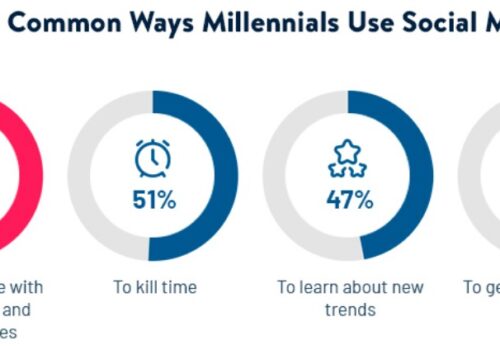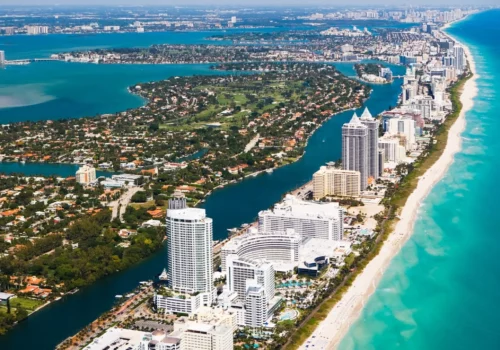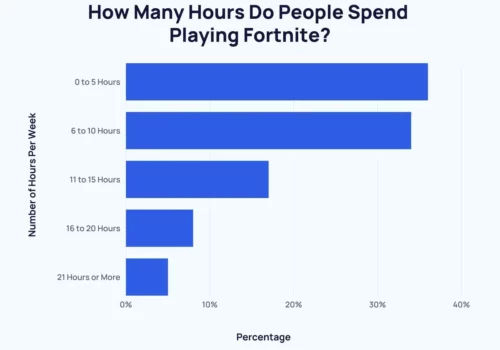Want to know how many new businesses are starting up in the United States? Explore the stats to find out how many startups there are and how well they’re doing, and get a better understanding of the business world in the US.
Learn about the growth, success rates, and trends in the dynamic world of entrepreneurship across the country.
| Year | Percentage of Startups with Female Founder(s) |
|---|---|
| 2017 | 22% |
| 2018 | 24% |
| 2019 | 26% |
| 2020 | 28% |
| 2021 | 49% |
| 2022 | 21% |
| 2023 | 42% |
How Many Startups in the US Are There 2024?
People who want to know how many startups there will be in the US in 2022 should know that there are more than 70,000 active startups in the country right now.
This high number is no surprise since the country is home to the famous Silicon Valley, which has been the best place for tech startups to grow since the 1970s.
In a similar way, the United States is known to have one of the best startup environments in the world. This is because it has policies that help startups, quick access to markets and funding, and teaches young people about business ideas from an early age.
Startup Demographic Statistics
- All other age categories are surpassed by startups with a core team of 25 or younger.
- 20% of startup starting teams include at least one woman. In 2009, the number was 10%.
- Female entrepreneurs have globally raised $5 billion in venture financing.
- At least one woman found 28% of American startups.
- 14% of US Startups are led by women.
- In China, there is a 1.5% gender disparity among founders.
- In Japan, there is a 4.5% gender disparity among founders.
- In Colombia, there is a 2% gender disparity among founders.
- In India, just 15% of Unicorn startups are founded by women.
- Five of India’s fifteen Unicorn Startups in 2022 will have a female co-founder.
- In 2021, the rate of new female entrepreneurs among U.S. residents was 0.28 percent.
- Google provides $5 million to black founders. The hashtag for their endeavor is #FundBlackFounders.
- The average age of a founder of a startup is 45. Despite this, 40% of businesses are led by individuals under the age of 40.
- With 1,127 company founders among its alumni, Stanford University is the university with the most entrepreneurs. The alphabet was also established by a few Stanford Alumni (Larry Page & Sergey Brin).
Minority Women in Business
- Minority women-owned businesses made $422 billion in revenue in 2019.
- The number of businesses owned by minority women grew by over 163% since 2007.
- 21% of women-owned businesses were owned by Black women, 9% by Asian women, 18% by Latina women, 1.4% by Native American women, and 0.3% by Pacific Islander women.
- Businesses owned by women of color employ over 2.2 million people.
- 17% of Black women are in the process of starting a new business.
- Black and Latinx female-founded businesses have raised $3.1 billion in VC funding.
- Over 2.5 million businesses in the United States are owned by Black women.
Data on Women-Run Startups
- In 2021, 49% of startups were formed by women.
- Only 2.5% of startups have solely female founders.
- Since 2016, startups founded by women have received only 4.4% of venture capital backing.
- 14% of startups have a female CEO.
- Women are 37% more likely than men to invest in startups for portfolio diversification.
- In 2017, the rate of new entrepreneurs for women was 270 per 100,000 people.
- Women-led companies use two-thirds less capital than male-led companies during the startup phase.
- Millennial women are 22% more likely to be founders of a startup than Baby Boomers.
- In 2020, 28% of startups had at least one female founder.
- Startups with at least one female founder received 17.2% of venture capital for the first half of 2022.
- 14% of unicorn startups in 2021 had female founders or co-founders.
Funding Statistics for Women-Led Companies
- Only 27% of women seek financing for their business.
- 62.3% sought financing in 2020 due to growing operating expenses.
- Women-founded startups get less than half the funding as those founded by men but generate 10% more income over five years.
- 73% of women entrepreneurs experienced difficulty getting funding.
- Only 32% of women who apply for business funds are approved.
- 61% of female founders self-funded their businesses.
- Women-owned businesses in California and Texas are most likely to submit loan requests.
- In 2020, women received loans that were 33% smaller than those of their male counterparts.
- The average loan for women to start their businesses is $59,857.
- 71% of female business owners aren’t concerned about receiving financial aid or funding.
- 33% of female business leaders received financial aid during the COVID-19 pandemic.
Small Business Owners: A Female Perspective
- The average age of women small business owners is 42 years, with an average business duration of 11 years and a household income of $110,000 or more.
- Women own 39% of small businesses in the U.S.
- Female-owned small businesses were 7% more likely to close during the COVID-19 pandemic than those owned by men.
- 32% of women entrepreneurs said fellow small business owners were the most beneficial resource during the pandemic.
- 66% of women business owners are the sole owners of their companies.
Startup America Initiative
Many people today don’t understand why so many of the most successful startups in the world are based in the United States. One thing to think about is how easy it is to get money.
In 2011, “Startup America” was launched by the White House. Former US President Barack Obama was in charge of it.
The goal of the initiative is to speed up and encourage high-growth entrepreneurship in all states so that there is long-term growth and better jobs for people.
The Small Business Administration was in charge of managing the $2 billion in funding for impact investing and seed financing for businesses in their early stages.
Startups that start in the United States have access to almost all of the secrets to success.
Apple, Facebook, and Amazon are role models in the US, which are important when developing business plans.
Living the American dream for real.
In the United States, How Many Startups are Initiated by Women?
There is also a big rise in the number of women working in startups.
Over time, more and more women have started their own companies or been one of the first people to join a new company.
Take a look at the data from Statista that shows what percentage of new businesses in the United States were started by at least one woman.
- 2017 – In the United States, 22% of startup companies have at least one female founder
- 2018 – At least one female founder was involved in 24% of all American startups
- 2019 – At least one woman co-founded 26% of all US startups in 2019
- 2020 – In the United States, 28% of all startups have at least one female co-founder
- 2021 – Almost half, or 49%, of all startups have been founded by women.
- 2022 – There are around 5.9 million employer firms in total, out of which 1.2 million (21%)
- 2023 – There are 13 million women-owned businesses in the US, employing over 9.4 million workers, which make up 42% of all US businesses.
What Does a Startup Mean?
Small businesses are where most startups get their start, but not all small businesses are startups. We often use these two terms interchangeably, but in many fields, they mean different things.
Investopedia says that a company is a “startup” if it is just getting started and is looking for outside investment to get its ideas out there.
Its goal is very different from that of a small business. The goal of a small business is to make enough money to live on, while the goal of a large business is to grow and possibly become worth a billion dollars in the long run.
Because of this, startups come up with new ideas that have never been made before.
They want to “disrupt” the industry by coming up with something new that could help solve problems that have never been thought of before.
Forbes says that a startup can become a “larger firm” when it has an annual revenue of $20 million or more and at least 80 employees.
Quick Links:
- Procrastination Stats, Trends, and Insights
- Logo Statistics
- Video Marketing Stats You Should Know
- TikTok Statistics You Need To Know
- E-Learning Stats and Trends
Conclusion: How Many Startups In The US 2024
The startup landscape in the United States is constantly changing and full of energy.
Each year, a large number of new businesses are launched, providing a plethora of opportunities for innovation and growth.
However, the path to success is not without its challenges, and many startups encounter obstacles along the way.
Nevertheless, these statistics demonstrate the resilience and determination of entrepreneurs in the U.S. as they persist in driving economic growth and shaping the future of business.




